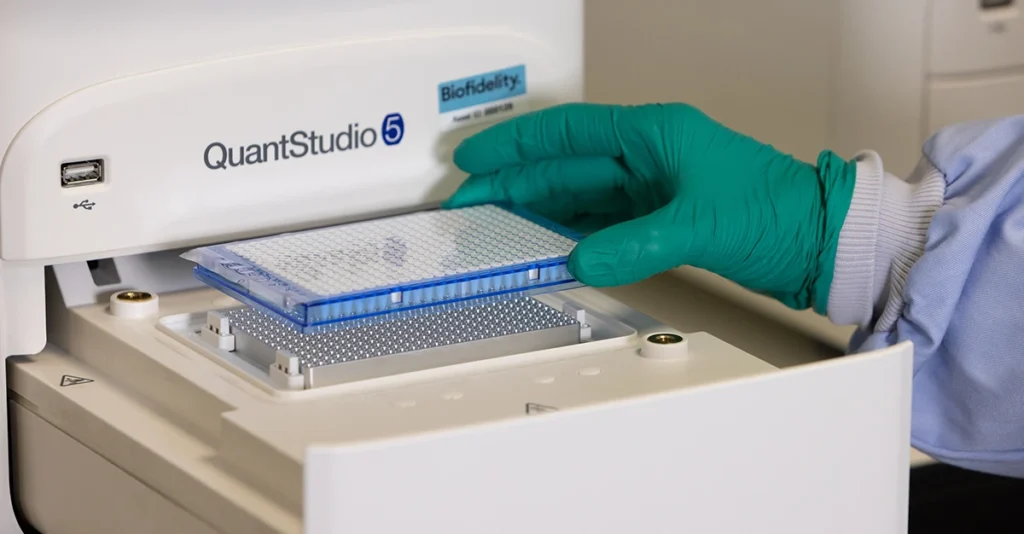Over the past decade, non–small cell lung cancer (NSCLC), especially in the advanced stage, has transformed into a genetically heterogeneous disease with separate biomarker-directed treatment pathways for distinct patient populations. As a result, broad panel based biomarker testing for advanced NSCLC patients is strongly recommended according to current guidelines but testing adoption in the real-world setting still lags behind. As more and more biomarker-directed drugs get approved for NSCLC treatment, there is greater impetus for broad panel based testing at the initial pathological evaluation itself so that a treatment plan can be crafted at the patient’s medical oncologist visit, reducing time to treatment and potentially improving survival.
While we still play catch-up in the advanced NSCLC setting, there has been an increased focus on NSCLC therapeutics active in early-stage disease, with potentially curative intent. One-third of NSCLC patients present with early-stage disease, with limited targeted or immunotherapy options available. For years, platinum-based chemotherapy had been the standard adjuvant treatment in early-stage NSCLC. Currently, there is a nationwide shortage of platinum based chemotherapy formulations throughout the US with a majority of 27 National Comprehensive Cancer Network (NCCN) Member Institutions experiencing a shortage of two major formulations due to increased demand and manufacturing delays.

The routine use of chemotherapy in early-stage NSCLC first changed in 2021. Standard of care treatment was updated for resectable NSCLC without EGFR or ALK alterations including neoadjuvant platinum-based chemotherapy and immunotherapy or adjuvant chemotherapy followed by immunotherapy. More recently, data presented from the phase 3 ADAURA trial at the 2023 ASCO Annual Meeting demonstrated that treatment with adjuvant EGFR-TKI osimertinib produced meaningful improvement in overall survival (OS) in patients with resected, EGFR-mutated, stage IB-IIIA NSCLC. Other early-stage notable data presented at ASCO 2023 was the immunotherapy pembrolizumab showing strong event free survival (EFS) and Response in early-stage NSCLC in the neoadjuvant setting. The emergence of newer targeted and immunotherapy options accompanied with the current shortage of chemotherapy has made the prioritization and judicious use of different therapeutic options critical.
With newer biomarker-directed treatment pathways and clinical trials being available, broad panel-based testing for relevant biomarkers such as EGFR, ALK and ROS is becoming important in early-stage disease both from a therapeutic and prognostic standpoint. While broad panel based biomarker testing in advanced NSCLC patients is strongly recommended by current practice guidelines, the recommendations for molecular testing of tumors in early-stage lung cancer are much less clear. For resectable stage IB-IIIA NSCLC, the current NCCN guidelines recommend tissue-based testing for EGFR mutations; peripheral blood based testing in these early stages of disease is still a gap that is technically challenging for currently available tests to fill. Additionally, similar to advanced NSCLC management, there is precedence that NSCLC patients with EGFR– and ALK-driven cancers should not receive immunotherapy in the early-stage setting. Therefore, the testing paradigm for early-stage NSCLC at the minimum should now include EGFR, ALK and PD-L1 IHC, with key opinion leaders advocating the use of broader panel based testing for all stages of NSCLC.

Another emerging trend that may impact early-stage NSCLC treatment management and surveillance in the coming years is minimal residual disease (MRD) testing. Presence of circulating tumor DNA (ctDNA) has been demonstrated to be a strong prognostic indicator of relapse. As more and more targeted and immunotherapy options get approval in the early-stage setting, there is going to be a need to stratify patients into responders and non-responders based on MRD status using ctDNA based assays. In NSCLC specifically, there is likely going to be an increased need to also track actionable driver mutations in addition to MRD status. Once MRD status is determined, the same ctDNA based test can also be used to monitor patients over time. However, clear clinical utility needs to be established for such applications in addition to making current NGS-based tests more sensitive and affordable as the need for biomarker testing multiple times throughout the patient journey solidifies.
With encouraging data on therapeutic efficacy in the early-stage settings, the need for upfront panel based biomarker testing at NSCLC diagnosis and then as the patient progresses is consistent with best practices. Current NGS-based assays are too broad and do not currently provide a cost-effective means of re-testing patients multiple times sequentially. While access to biomarker testing is finally gaining traction via legislative bills in several US states, the increased cost along with the complexity of NGS-based testing might increase the burden on health systems and pose serious headwinds to ensuring access to biomarker testing when the patient most needs it in their cancer journey.
About Biofidelity
Founded in 2019, Biofidelity is a rapidly growing private company of scientists, engineers, physicians, and commercial experts dedicated to making genomics globally accessible. Our goal is to enable millions of lives to be transformed, through access to the vial information needed for accurate targeting and monitoring of cancer treatment. We are achieving this by developing innovative technologies that unleash the potential of genomics by removing the noise from genomic data, providing only the information needed to enable swift decision-making.
To learn more about Biofidelity click https://biofidelity.com
Connect with us
Have questions, need more information, or ready to start your journey? Connect with us below.